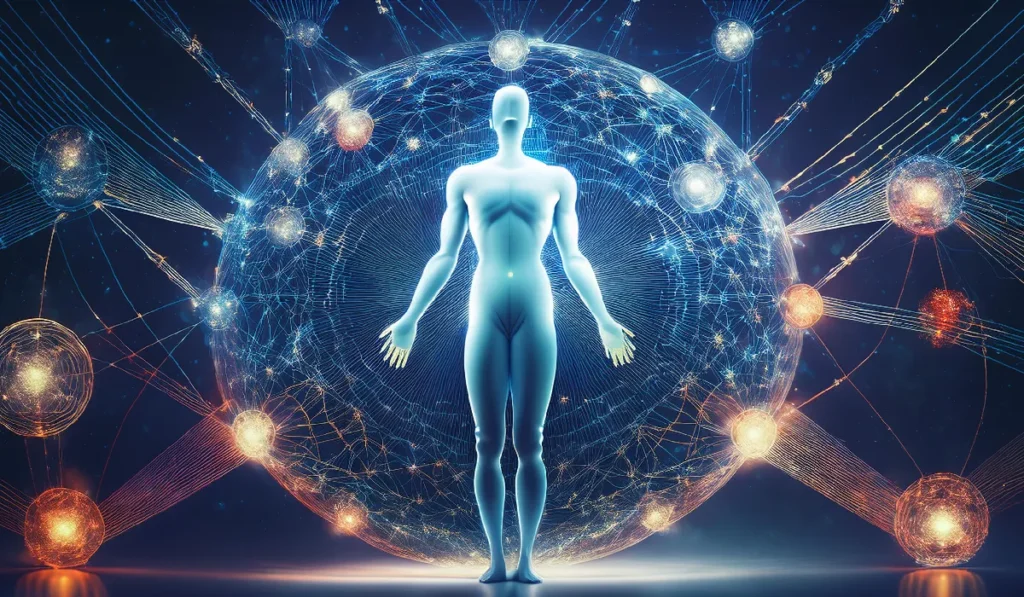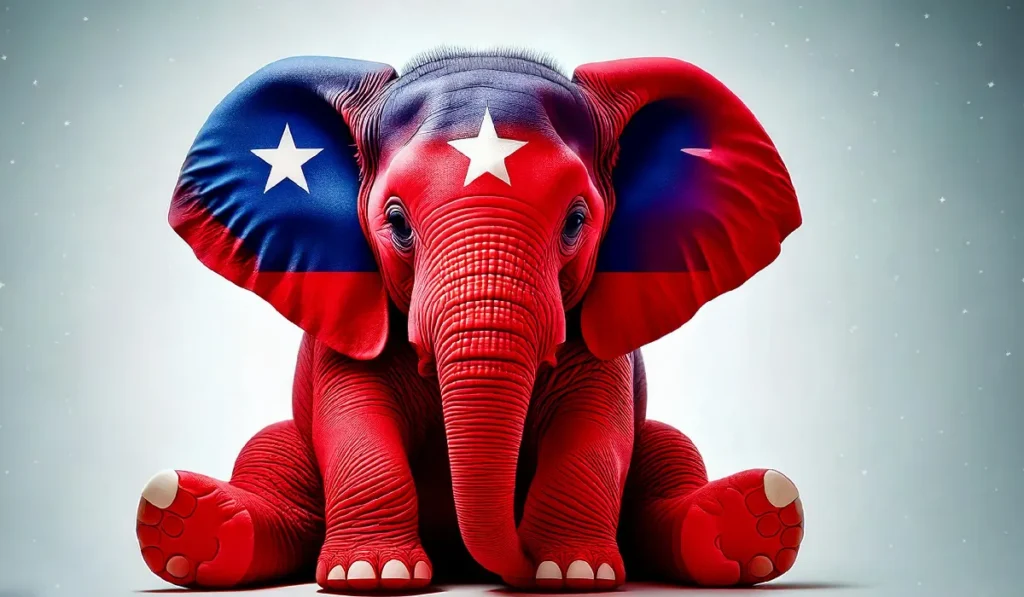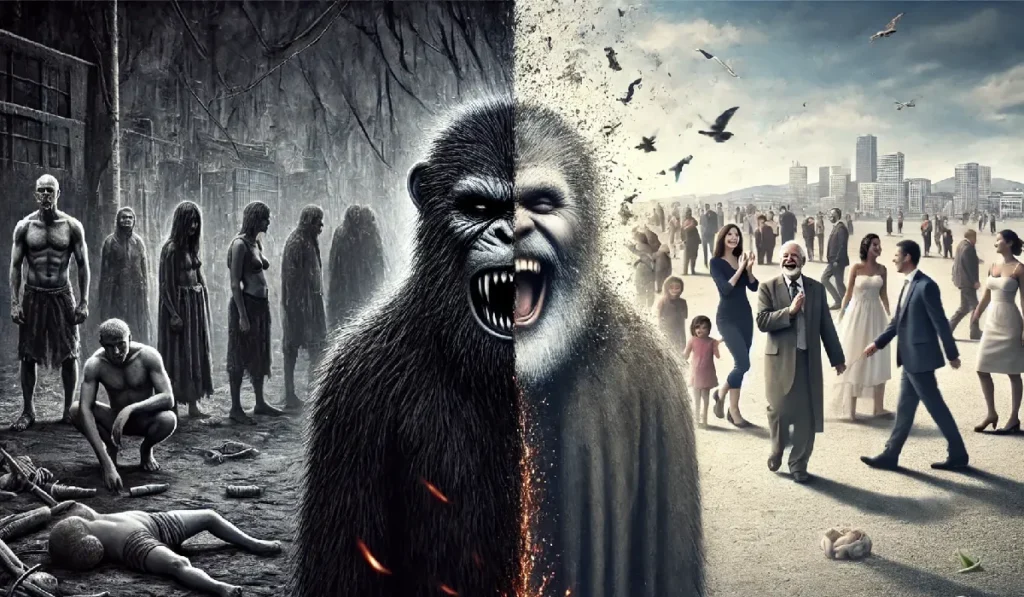
This question has been answered differently for centuries since antiquity and has had a great influence on some epochs.
In this homepage it was explained that man and his thinking are a relationship structure that he builds up with himself, with others and other things such as God. Therefore, he is embedded in social references and cultures that shape him and in which he relates to himself, others and other things in his biological appearance and imprint.
This leads to the thesis that man is inseparably connected with his relationships, so that his “nature”, i.e. what he is from birth, is this relationship structure. The human being is the relationship itself.
He lives in space and time. The essence of time is separation, and indeed incessantly from the present into a past that can no longer be changed. In this present, he makes decisions that separate him from other possibilities and continuously become his life story and identity.
Every separation thus takes on the meaning of death, which extinguishes the living of the present and turns it into history. The separation of the relationship with one’s own body is physical death. But also, the separation from the present in the course of time, the separation of human relationships such as a divorce, decisions in which one necessarily has to separate oneself from other possibilities of life, are ultimately experiences of death, since they cannot be retrieved. No one can live two different lives in parallel.
The bringing to mind of separation is anxiety.
Human life is thus in the basic structures of relationship, separation and anxiety.
But the human being is above all and fundamentally a relationship and that means connectedness.
Since man is fundamentally this relationship itself, it is obvious to call this fundamental structure in its highest form love. A term that is described here exclusively as a rational structure.
However, it is also perfectly clear that emotional development is an important and supporting element of relationships. However, not only, because love is also a decision and thus also an attitude, so that feelings can fluctuate in relationships but do not immediately lead to the breakdown of the relationship, since love can become fidelity, i.e. a continued decision and this can consolidate into an attitude and thereby a large fluctuation range of feelings becomes possible, without questioning the fundamental decision to love.
However, it is about the existential orientation of the relationship of the human being and therefore:
There is no higher rationality than that of love.
The manifold forms in individual and social life, as a hopefully supporting feeling in marriages and cohabitations, in families, etc., are of course included in the basic structure of the human being.
The human being is therefore neither good nor evil by nature, because he is a relationship that can be shaped in both directions.
He who loves is happy, because he realizes the potential of human life.
Nothing creates less coercion and at the same time gives more freedom than love.
These are the core statements of this homepage.
These remarks follow the democracy that has been deeply rooted in the USA for so long and a democratic politics that, according to James Madison, “represents the greatest reflection on human nature in its political realization.”
James Madison does not commit himself to the question of whether human nature is good or evil, but he sees man’s potential for good and evil.
And he, as well as the founding fathers of American democracy, want to protect people from the effects of evil.
Evil damages and destroys the relationship structure of man, and good builds it. This could be a simple definition of good and evil. Sin as a religious term is everything that harms life and therefore of course does not contradict what has been said so far.
But in this relationship and its orientation towards love, which is difficult to realize, as well as the manifold decisions in time, the tragedy and happiness of the individual human being as well as of humanity is also founded. And the individual is and remains dependent on so many decisions made by others in culture, business and politics, so that he is integrated into a community of destiny.
It is a never-ending struggle in human history to shape and develop the relationship structures as positively as possible.
Therefore, democracies defend the path to good in love and against evil, which destroys relationship structures.
This is inherent in nature, i.e. in the basic relationship structure of humans.
Therefore, the autocrats and dictators, the rulers with their often-disgusting human rights violations or even criminal acts are on the wrong path and their populations feel and know this, because they suffer from them. Their essential means of power is anxiety and its disintegrative effect in the individual human being. anxiety that destroys relationship structures and that ultimately turns against life itself, because it is the binging to mind of separation.
However, they are on the unfortunate side of history and their decisions bring further misfortune into the world. Stalin, Mao and Hitler are not examples of successful relationships and happiness, neither in the individual nor in society.
Striving for something does not mean that you have achieved it. Therefore, democracies are in a constant struggle for this path.
Democracies, like individual life, require constant practice, a constant departure towards positive goals.
From this fundamental point of view, good and evil are not simply arbitrary social constructs.
Constructs that serve certain power interests, as Friedrich Wilhelm Nietzsche (1844-1900) philosophically explained.
He laid the foundations for a way of thinking that describes human nature as a life force that ultimately only realizes the “will to power” and uses moral terms to do so. Everything is only for the attainment of power. Therefore, all values can be revalued: “Nothing is true, everything is permitted” (Genealogy of Morality),
This mental preparation consequently produces such figures as Hitler, who in his nationalist orientation in the sense of “Make Germany great again” destroyed relationship structures up to the almost necessary end point, namely the death of millions of people, and thus brought evil into the world of Germany at that time, which found its way in the world.
Nietzsche explains “that appearances, the will to deceive, self-interest and desire would have to be ascribed a higher and fundamental value for all life”. If, however, man can no longer find a foothold in what is true and what he can build on, then he loses his footing and comes into that “metaphysical homelessness” that opens him up to believe anything and to do anything he wants.

